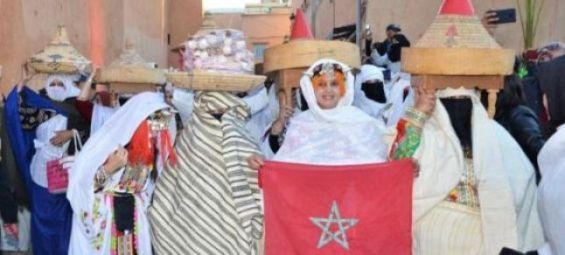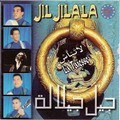Moroccans celebrate Sunday, January 14, for the first time, the Amazigh New Year as an official paid national holiday, like the first day of the Hijra year and New Year's Day of the Gregorian calendar.
This unprecedented celebration comes following the decision of King Mohammed VI to establish this official paid national holiday by giving his guidelines to the head of government to make the necessary arrangements for this purpose.
The initiative aims to preserve cultural diversity and strengthen the gains made regarding the Moroccan Amazigh identity since the historic speech given by the King in Ajdir in 2001. In this context, the Governing Council adopted two draft decrees setting the list of paid holidays and bank holidays.
For all Moroccans, celebrating the Amazigh New Year as an official paid national holiday, like the first Moharram of the Hegira year and New Year's Day on the Gregorian calendar, is a source of joy which is an integral part of their pride in their Moroccan identity.
The celebration of the Amazigh New Year has a strong symbolic significance reflecting the roots and diversity of the Moroccan cultural fabric as well as the desire to move forward in the effective implementation of the official character of Amazigh. It is also a pragmatic response to the aspirations of the Moroccan people in the context of the promotion of the Amazigh language and culture, and the integration of Amazigh in education and administration.
The initiative to decree Yennayer as an official national holiday gives a strong impetus to the process of implementing measures aimed at strengthening national Amazigh identity, particularly in its cultural dimension. It is also a new step which reinforces the actions intended to meet the challenges which arise in terms of support for Amazigh culture in Morocco and its promotion in different areas by applying the Constitution.
Likewise, the different stages and festivities planned to celebrate the Amazigh New Year reflect the government's support for the project of implementing the official character of the Amazigh language.
Efforts are also being made to guarantee reception services in the Amazigh language in public administrations, through the mobilization of hundreds of reception agents responsible for advising and guiding Amazigh-speaking citizens, with the aim of their facilitate access to public services.
The government also set up 9 Amazigh-speaking divisions in the call centers of certain ministerial departments and public institutions which experience a high influx of users, with the mobilization of 63 agents responsible for telephone communication in the Amazigh language.
For the record, Article 5 of the Moroccan constitution provides that «Arabic remains the official language of the State. The State works to protect and develop the Arabic language, as well as to promote its use. Likewise, Amazigh constitutes an official language of the State, as a heritage common to all Moroccans without exception».





 chargement...
chargement...












